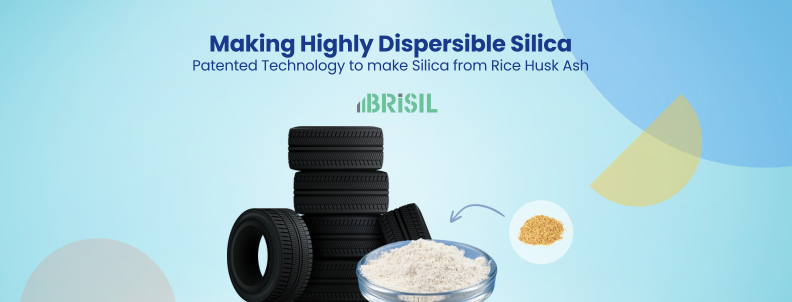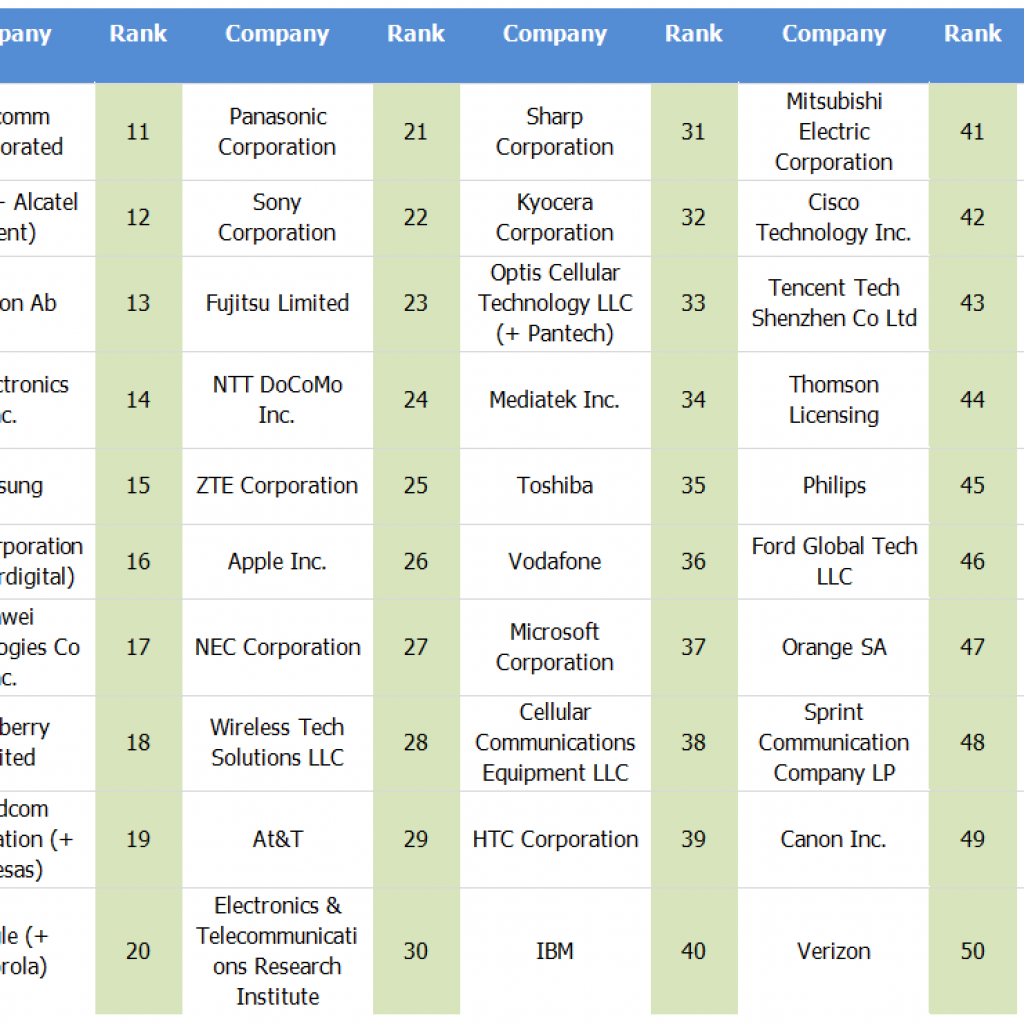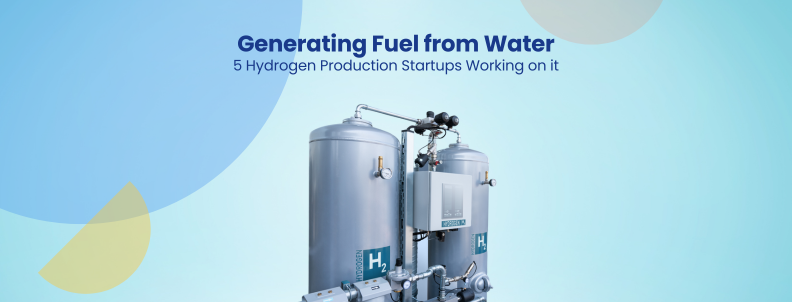Rice husk ash, a byproduct of burning rice husk for fuel, presents a significant disposal issue for industries, especially as pollution regulations become increasingly stringent. Without proper disposal methods, this ash can contribute to environmental pollution. Parallely, industries such as tire manufacturing are under pressure to adopt greener, more sustainable materials to reduce carbon emissions and enhance product performance.
Innovative startups like Brisil see these problems as opportunities to create technologies and products that solve both problems simultaneously.
Brisil’s technology converts rice husk ash into high-value materials like precipitated and highly dispersible silica. This innovative process offers a sustainable solution for rice husk ash disposal and provides industries with eco-friendly alternatives.
As a technology scouting firm, we were determined to uncover the science behind Brisil’s technology and explore its potential impact on combating waste and sustainability challenges.
So, we spoke with Tanmay Pandya, the CEO of Brisil, to gain valuable insights about how the startup is upcycling risk husk ash to manufacture Highly Dispersible Silica (HDS). This interview is part of GreyB’s Scouted series. In this series, we spotlight innovative startups and speak to their founders about how their solutions can revolutionize the industry by solving problems. You can find all those interviews here.
Author’s note: While researching, we found many other startups upcycling waste into green chemicals. Click on the link to learn more about them.
“There is a push towards sustainability, so many big customer wants to move to a product which can help them reduce their carbon emissions or improve their ESG report cards.”
– Tanmay Pandya

Tanmay Pandya is the Founder and Director of Brisil Technologies. Before this, he co-founded Bridgedots, a cleantech startup, and worked as its Director for 5+ years. He completed his B.Tech in Chemical Engineering from the Indian Institute of Technology.
Want to know more about Brisil’s HDS technology? Watch our conversation with Tanmay.
Overview: Brisil Utilizing Rice Husk Ash to Create Precipitated Silica and HDS
Brisil is a pioneering company focused on solving the significant challenge of rice husk ash disposal by transforming this agricultural byproduct into high-value materials like precipitated silica and HDS.
Utilizing its patented technology, Brisil converts rice husk ash into essential material. These materials have been successfully commercialized and have applications in tires, rubber, toothpaste, paints, and plastics.
The highly dispersible silica produced by Brisil is particularly valuable as a filler in energy-efficient green tires. It enhances vehicle mileage and reduces greenhouse gas emissions. The company’s technology is recognized as one of the most advanced in silica production.
“In the startup journey, you always get such developments that keep you hopeful about the prospects… because for any idea or business to become big, there has to be a big market and big customers.”
– Tanmay Pandya
Short on time?
Here are key highlights from the discussion.
Highlights from The Conversation
How did you come up with the idea to start the company?
The idea behind Brisil came from a unique problem a large power generation company presented to us. They used rice husk to generate electricity, but the process resulted in a significant amount of ash, which they had no use for. They approached us to develop a technology that could utilize this ash, which they believed had good market potential.
As we delved into the problem, we realized that this ash disposal issue was not small but rather a widespread challenge. We also discovered that the silica extracted from this ash could be valuable, particularly in the tire and rubber industries.
When we presented this idea to a top executive from a leading tire company, he confirmed its potential if properly developed and commercialized. That was our ‘aha’ moment—realizing that we could address both the ash disposal problem and meet the significant demand for silica in the market.
What your product — Highly Dispersible Silica (HDS), means, and why it’s better than regular silica, particularly in the tire industry?
Silica has been used in the tire industry for decades, and over the years, the quality of silica has improved to replace carbon black in tires. Highly dispersible silica (HDS) is an advanced grade of silica with superior dispersion properties.
HDS disperses more evenly when mixed with rubber than regular silica, allowing for a higher silica content without compromising the rubber’s properties. This results in better tire performance, which is crucial for modern applications.
If a tire manufacturer is considering switching to HDS, how do you justify the cost compared to regular silica?
One key advantage of our HDS is that it’s derived from rice husk ash, a biosource, rather than from sand, which is commonly used. This results in significantly lower carbon emissions—about 70% less than regular silica.
As sustainability becomes a priority, many customers see the value in reducing their carbon footprint and improving their ESG scores.
Additionally, our silica can directly replace regular silica in existing processes without requiring changes in logistics or supply chains, which makes the switch more seamless and cost-effective in the long run.
How did you manage the sourcing of rice husk ash, especially since it’s a decentralized material? Do you foresee challenges as demand grows?
We did extensive research before starting to ensure a steady ash supply. Currently, we have long-term contracts with companies generating large quantities of ash, securing our supply for existing and future operations.
We’re also preparing for the future, knowing that as ash becomes more valuable, competition for it will increase. We’re engaging in long-term partnerships and investments to ensure a stable supply as we scale up.
How do you decide which products to develop next?
We look at two things: first, what products can be derived from our existing process with minimal modifications, and second, what other valuable chemicals can be extracted from different types of biomass waste. We evaluate the market potential for these products and prioritize those with the highest demand and feasibility.
What’s your strategy behind filing patents?
We have both Indian and US patents. The US patent, in particular, is highly respected globally and gives us a strong position in the market.
While filing patents in every country is costly, securing a US patent provides broad protection and credibility. Knowing that our technology is novel and legally protected is reassuring for our customers and investors.
Want to be featured in Scouted by GreyB? Join a conversation with our experts and showcase your groundbreaking technology.
Book your slot today!
Meet our Interviewer – Vikas Jha, AVP, Solutions at GreyB

Vikas Jha is an experienced tech consultant focused on intellectual property consulting. With expertise in diverse domains like Telecom, Navigation, and Medical Devices, he helps clients navigate innovation challenges. His ability to bridge technology, innovation, and leadership makes him a valuable resource in the evolving tech landscape. Vikas has been featured on CNBC for his insights on next-gen technologies like space tech.
Take a look at other startups scouted by GreyB!
Authored By: Naveen Kumar, Marketing
Next Read: 5 Bioplastics Startups to Solving Waste and Pollution Problems










